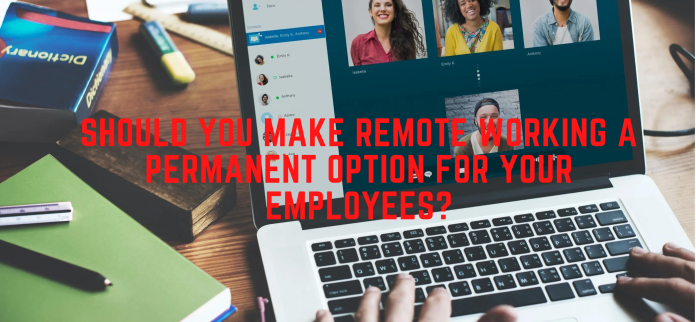Over the past year of COVID-19-mandated working from home, many businesses have taken the plunge, making remote working a permanent option for their employees. Thus, could implementing permanent remote working be the right move for your business?
What might act as a barrier, and how you could overcome it
- Existing rent or utilities commitments
Commercial renting agreements are typically longer in duration than a domestic lease, and the same might be seen in utility bill contracts. Similarly, selling your office space may take a while and may not even be feasible in the current market.
If this is the case, you could approach the situation by adopting a hybrid office model, with the intention to make all of your workers remote at some time in the future. This way, you still make use of your physical offices, but can start the ball rolling towards permanent remote working.
Also Read:Making Virtual Working More Inclusive For Employees With Hidden Disabilities
- Personal device security
As a company looking to switch to remote working, you might be concerned about the security of your employees’ devices and the safety of them using personal devices to access work-related documents and data.
However, you can make sure that BYOD policies are fully secure by implementing “zero trust” network access. Instead of the network trusting that its users are all authentic and trustworthy, and conversely all users trusting that the network itself is safe, zero trust ensures device and network security for everyone – both remote workers and those in the office.
Also Read:
- Workplace culture and mental health
When suffering from mental health problems, seeing others in your workplace every day can go a long way towards helping you to feel less alone. The worry with remote working is that employees who are on their own may find it hard to strike a work-life balance – and, as a result, suffer with their mental health.
This issue might never be entirely solved in the near future, as nothing can replace human contact. However, you could still make sure you promote an online workplace culture full of instant messaging and video calls. Remember, if you do see early signs of mental health issues, you are always encouraged to contact a professional.
- Will it improve flexibility or hinder productivity?
Though you may fear remote working potentially hindering your employees’ productivity, one study found that remote employees are actually more productive than their office-based counterparts.
Working remotely can improve flexibility for your employees, allowing them to work around childcare and other commitments. This flexibility should therefore increase productivity. However, as this will depend on your workforce, judgments should be made accordingly.
- Managing across sites
Having people working across sites, be it multiple offices or simply remote workers’ individual homes, is enough to get any manager in a sweat! You need to supervise not only employees in the same physical building as you but also workers you cannot see.
To overcome this, you should make sure your leadership style is adaptive and employ more flexibility in your approach. This will be more effective and can also positively impact workplace motivation.
Overall, this is not a decision to be made lightly, and should be made with your employees in mind. With these tips, you will be able to begin discussions as to whether you should make remote working a permanent option for your employees.





































